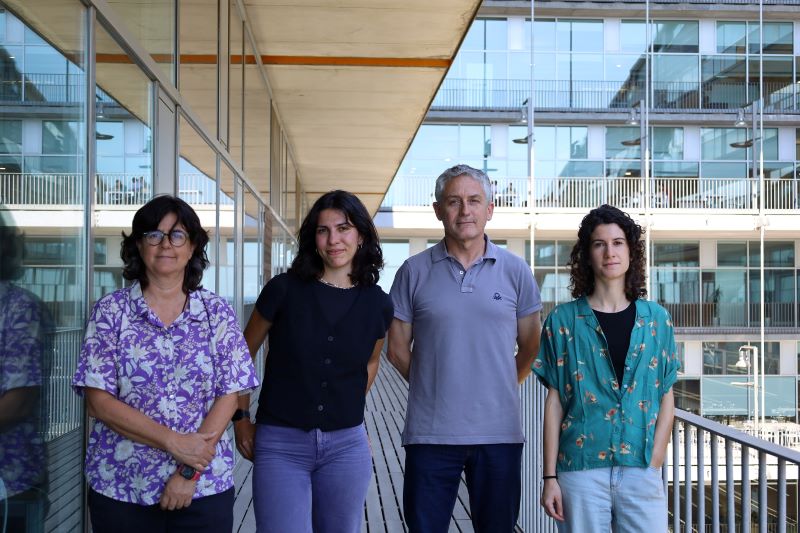 精选
精选
癌症疫苗的突破:微小的蛋白质如何彻底改变肿瘤学
诸平
据西班牙德尔马医院医学研究所(Hospital del Mar Medical Research Institute-IMIM, Barcelona, Spain)2024年7月10日提供的消息,癌症疫苗的突破:微小的蛋白质如何彻底改变肿瘤学(Cancer Vaccine Breakthrough: How Tiny Proteins Could Revolutionize Oncology)。
科学家们发现了一组仅在肝脏肿瘤中产生的微蛋白(microproteins)。这使得它们成为免疫系统细胞的明确目标和癌症疫苗(Cancer Vaccine)开发的潜在目标。一项研究发现了肝脏肿瘤特有的一组小分子,这可能是开发癌症疫苗的关键。这些都是微蛋白,只在肿瘤细胞中表达的非常小的蛋白,这可以导致免疫细胞对肿瘤的激活。
这项研究是由德尔马医院医学研究所、西班牙纳瓦拉大学{Center for Applied Medical Research (CIMA), University of Navarra (UNAV), Pamplona, Spain}和西班牙庞培·法布拉大学{Pompeu Fabra University / Universitat Pompeu Fabra (UPF), Barcelona, Spain}领导的,于2024年7月10日已经在《科学进展》(Science Advances)杂志网站发表——Marta E. Camarena, Patrick Theunissen, Marta Ruiz, Jorge Ruiz-Orera, Beatriz Calvo-Serra, Robert Castelo, Carla Castro, Pablo Sarobe, Puri Fortes, Júlia Perera-Bel, M. Mar Albà. Microproteins encoded by noncanonical ORFs are a major source of tumor-specific antigens in a liver cancer patient meta-cohort. Science Advances, 2024, 10(28): eadn3628. DOI: 10.1126/sciadv.adn3628. Epub 2024 July 10. https://doi.org/10.1126/sciadv.adn3628
参与此项研究的除了来自德尔马医院医学研究所、纳瓦拉大学和庞培·法布拉大学的研究人员之外,还有来自德国柏林的亥姆霍兹协会(MDC) 马克斯·德尔布吕克分子医学中心{Max Delbrück Center for Molecular Medicine in the Helmholtz Association (MDC), Berlin, Germany}、西班牙潘普洛纳的肝脏和消化系统疾病生物医学网络研究中心{Centro de Investigación Biomédica en Red de Enfermedades Hepáticas y Digestivas (CIBEREHD), Pamplona, Spain}、西班牙潘普洛纳的纳瓦拉卫生研究所{Instituto de Investigación Sanitaria de Navarra (IdiSNA), Pamplona, Spain}、西班牙潘普洛纳的纳瓦拉癌症临床大学{Cancer Clinic University of Navarra (CCUN), Pamplona, Spain}、西班牙马德里的西班牙高级治疗网络{Spanish Network for Advanced Therapies (TERAV ISCIII), Madrid, Spain}以及西班牙巴塞罗那的加泰罗尼亚研究和高级研究所{Catalan Institute for Research and Advanced Studies (ICREA), Barcelona, Spain}的研究人员。
通过先进技术的发现(Discovery Through Advanced Techniques)
通过整合来自100多名肝癌患者的肿瘤和健康组织的数据,研究人员确定了这组微蛋白。这些小分子是由以前被认为不能编码蛋白质的基因产生的。
“近年来,人们越来越关注这组基因,由于它们的长度短或低表达,被认为是非编码的。新技术揭示了这些基因中的一些确实可以产生小蛋白质,”德尔玛医院研究所的ICREA研究者、上述论文的合著者M. Mar Albà说。
这一发现是通过结合转录组学(transcriptomics)、翻译组学(translatomics)和蛋白质组学(proteomics)等计算技术,以及旨在研究免疫反应的实验室实验而实现的。
癌症疫苗的潜力(Potential for Cancer Vaccines)
癌症疫苗的开发依赖于免疫系统识别不属于身体的外来分子的能力。癌症细胞的突变产生外源性肽类物质,引起免疫系统的警觉。然而,挑战在于突变率低的癌症,如肝癌。此研究为以前很难检测到的微蛋白提供了一种替代方法。
“这项研究表明,在肿瘤细胞中有大量专门表达的微蛋白,可以用于开发新的治疗方法,”德尔马医院研究所的研究者玛塔·埃斯皮诺萨·卡马雷纳(Marta Espinosa Camarena)解释说。
面向临床应用(Towards Clinical Application)
“我们已经看到,这些微蛋白中的一些可以刺激免疫系统,可能产生对癌细胞的反应。这种反应可以通过疫苗来增强,类似于冠状病毒疫苗(coronavirus vaccines),但可以产生这些微蛋白。这些疫苗可以阻止或减少肿瘤的生长,”CIMA和CIBEREHD的研究人员Puri Fortes说。
与其他基于患者特异性突变的疫苗类型不同,这种治疗方法可以在多个患者中使用,因为相同的微蛋白在不同的患者中表达。管理这些疫苗可能相对简单,尽管对其应用的研究尚未开始。研究人员表示,“这是我们的目标。”
上述介绍,仅供参考。欲了解更多信息,敬请注意浏览原文或者相关报道。
Microproteins Found in Tumors Could Lead to Cancer Vaccines
The expression of tumor-specific antigens during cancer progression can trigger an immune response against the tumor. Here, we investigate if microproteins encoded by noncanonical open reading frames (ncORFs) are a relevant source of tumor-specific antigens. We analyze RNA sequencing data from 117 hepatocellular carcinoma (HCC) tumors and matched healthy tissue together with ribosome profiling and immunopeptidomics data. Combining human leukocyte antigen–epitope binding predictions and experimental validation experiments, we conclude that around 40% of the tumor-specific antigens in HCC are likely to be derived from ncORFs, including two peptides that can trigger an immune response in humanized mice. We identify a subset of 33 tumor-specific long noncoding RNAs expressing novel cancer antigens shared by more than 10% of the HCC samples analyzed, which, when combined, cover a large proportion of the patients. The results of the study open avenues for extending the range of anticancer vaccines.
转载本文请联系原作者获取授权,同时请注明本文来自诸平科学网博客。
链接地址:https://wap.sciencenet.cn/blog-212210-1442231.html?mobile=1
收藏



